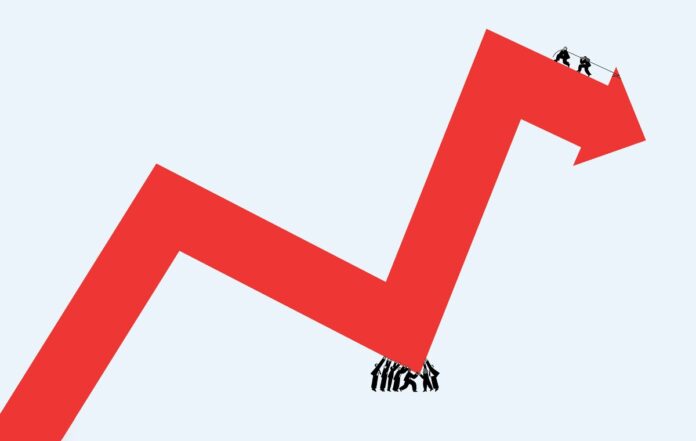The American economy stands at the cusp of a new era characterized by rapid technological advancement and digital transformation. As we delve into the 21st century, the interface of technology and economy paints a picture of profound change, where innovation is not just a buzzword but the currency of progress. In this exploration, we’ll dissect the myriad ways technology is not merely participating but actively shaping America’s economic landscape. From reshaping the job market to altering the essence of investment, tech’s tendrils reach far and wide, heralding a future of immense challenges and unparalleled opportunities.
The Digital Workforce and Cybersecurity Renaissance
The American job market has witnessed a seismic shift from traditional manufacturing to a knowledge-based, digital economy in recent decades. This transition is fueled by an insatiable demand for tech-savvy professionals capable of navigating the complexities of a digital world. The proliferation of remote work, powered by cloud computing and collaborative platforms, has decoupled jobs from geographic locations, democratizing opportunities and diversifying the workforce.
As the digital workforce grows, so does the significance of protecting its infrastructure. Cybersecurity has catapulted from a niche IT concern to a national priority. This is where we see how new tech revolutionizes cybersecurity – with advancements such as artificial intelligence and machine learning enabling predictive threat detection and automated responses to security incidents. The traditional economic value chains are being rewritten as cybersecurity becomes an integral component of business strategy, influencing everything from consumer confidence to international trade agreements.
The Green Tech Boom and Sustainable Development
The tech industry is reshaping America’s economic fabric through digital transformation and steering it toward sustainable development. The green tech boom is a testament to this shift, where renewable energy technologies, electric vehicles, and smart grids are becoming the engines of economic growth. Silicon Valley is no longer just the world’s software hub; it’s also the cradle for innovations aimed at decarbonizing the economy.
Investments in green technologies are surging, with the government and private sector recognizing the dual benefits of environmental conservation and economic opportunity. This synergy is creating new jobs, spurring research and development, and positioning the United States as a leader in the global fight against climate change. The ripple effects of the green tech boom are extensive, influencing urban planning, transportation, and even the geopolitical landscape with the quest for clean energy independence.
The Rise of the Digital Economy and Non-Fungible Tokens
In the digital economy, we’re seeing the emergence of new asset classes and investment opportunities that were unimaginable just a few years ago. Cryptocurrencies have disrupted the notion of money and assets, while blockchain technology has paved the way for unprecedented transaction transparency and security. As we dig deeper into the implications of blockchain, we encounter non fungible tokens (NFTs) – digital assets that represent ownership or proof of authenticity of a unique item or piece of content, primarily on a blockchain.
The advent of non-fungible tokens has opened up new avenues for creators, artists, and investors, creating a new ecosystem where digital ownership and rights are delineated and monetized like never before. This phenomenon has not only altered the landscape of art and collectibles but has profound implications for intellectual property rights, gaming, and even real estate. The NFT craze underscores the expanding frontiers of the tech-driven economy, where value is ascribed to digital uniqueness and the concept of ownership is redefined.
Artificial Intelligence – The Great Economic Equalizer or Divider?
Artificial Intelligence (AI) is arguably the most potent technological force shaping the new American economy. Its applications range from the automation of routine tasks to the augmentation of human capabilities and beyond. AI-driven analytics are transforming business decision-making processes, optimizing operations, and tailoring customer experiences. The health sector is seeing AI perform predictive diagnoses, while in finance, it’s used for personalized investment strategies.
However, as AI reshapes industries, it raises critical questions about the future of work and ethical considerations. The potential for AI to displace jobs en masse could exacerbate economic inequality, while its ability to improve productivity could create wealth like never before. The challenge lies in harnessing AI as an economic equalizer, leveraging its potential to address societal issues while mitigating its divisive effects. Policies, education, and a focus on human-AI collaboration are pivotal in steering AI towards being a force for inclusive growth.
Technology’s role in America’s changing economy is multifaceted and profound. As we have journeyed through the digital workforce revolution, the green tech wave, the new realms of the digital economy with non-fungible tokens, and the promises and perils of AI, it is clear that technology is the backbone of economic transformation. Embracing these changes requires a forward-thinking mindset and an adaptable workforce underpinned by a commitment to security, sustainability, and equity. The future is laden with tech; America’s economic prosperity hinges on riding this wave with wisdom and foresight. The nation at the forefront of technological innovation has the opportunity – and the responsibility – to ensure that this tech-centric economic evolution benefits all.





